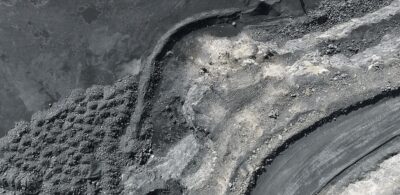Supreme Court Breathes New Life into Proposed Stage 3 Expansion of New Acland Coal Mine
07 May 2018
The Supreme Court of Queensland has overturned the Land Court's decision to recommend refusal of an amendment to New Acland Coal's environmental authority. This most recent decision reopens the door for the stage 3 expansion of the Oakey coal mine.
On 2 May 2018, the Supreme Court of Queensland delivered judgment in a judicial review proceeding (the Judicial Review Decision) that set aside previous orders made by the Land Court (the Merits Decision), and remitted the matter back to the Land Court for further consideration.
The Merits Decision had concerned an application by New Hope, the owner of the New Acland Coal (NAC) coal mine, to expand stage 3 of the mine. The Land Court heard objections about the application for the amendment of an environmental authority under the Environment Protection Act 1994 (Qld) (EPA) and the application for two mining leases under the Mineral Resources Act 1989 (Qld) (MRA).
THE BACKGROUND OF THE CASE
In May 2017, in the Merits Decision, the Land Court recommended refusal of stage 3 of NAC’s mine at Oakey, explained in our previous article.
Substantially relying on that recommendation, a delegate of the Chief Executive, Department of Environment and Heritage Protection, issued its decision to refuse NAC’s application to amend its environmental authority for the stage 3 expansion application in February 2018.
THE JUDICIAL REVIEW PROCEEDING
NAC made an application for judicial review of the Merits Decision. A judicial review proceeding does not consider a decision on its merits, but instead seeks to set aside the decision based on errors of law. The proceedings were brought on the following main substantive grounds:
- apprehended bias;
- lack of jurisdiction, an error of law and an improper exercise of power (by taking into account irrelevant considerations) in relation to matters of groundwater, because:
- the potential impacts of taking and interfering with groundwater were to be addressed by provisions of the Water Act 2000 (Qld) (Water Act), which is outside the scope of the Land Court’s jurisdiction; and
- even if the impacts could be considered, it was not necessary for them to be fully considered as that would prejudge the outcome of approvals under the Water Act;
- that the Land Court failed to properly interpret and apply the principle of intergenerational equity;
- an error of law by failing to ask the right question (and other errors associated with following certain judicial decisions) in relation to noise limits; and
- a breach of procedural fairness and the rules of natural justice, for a failure to put relevant concerns to certain witnesses.
On 2 May 2018, Supreme Court held that the following grounds had been established:
- Ground 10 – groundwater: it was an error for the Land Court to decide it fully needed to consider groundwater issues when considering the MRA and EPA objections;
- Ground 7 – intergenerational equity (consequent upon the conclusion in ground 10): the Land Court failed to properly interpret and apply the principle of intergenerational equity; and
- Ground 1(aii) – noise
It then ordered that those grounds having been established, the Land Court decision be set aside and referred back to the Land Court for further consideration. The parties have been invited to make submissions about the proposed orders. NAC has intimated it would like orders remitting the matter back to the Land Court for hearing by a member other than the original Land Court member.
Her Honour Justice Bowskill noted (but made no conclusion about) her Honour Justice McMurdo’s comments in Coast and Country Association of Qld v Smith [2016] QCA 242, where her Honour had expressed a view that when the Land Court is making its objections decision for the application, it must consider (amongst other things), the ‘standard criteria’ (s191 of the EPA).
Those include any ‘Commonwealth or State government plans, standards, agreements or requirements about …ecologically sustainable development’. McMurdo J noted that scope 3 emissions (i.e. not emissions caused by the physical operations carried out under the proposed mining lease but emissions that related to the transportation and burning of coal by others) should be considered by the Land Court when considering the standard criteria.
In the Judicial Review Decision, her Honour Justice Bowskill noted it was not necessary for the Supreme Court to determine in the context of the NAC judicial review application the question of construction raised by Justice McMurdo’s, but that those ‘comments leave that question open for consideration in the appropriate case’.
WHAT NEW HOPE FOR NAC?
The Judicial Review Decision does not result in an approval of the NAC stage 3 expansion (or even a recommendation for one). It does, however, mean there is now new hope for the stage 3 mine expansion, as the Land Court will have to reconsider the objections made under the EPA and the MRA in light of the findings in the Judicial Review Decision.
Most significantly, the objectors to the proposed NAC stage 3 expansion face certain challenges.
Transitional legislative provisions have the effect that before the stage 3 expansion can occur, NAC will need to obtain the relevant associated water licences to take or interfere with underground water under the Water Act. That means the taking or interfering with underground water (i.e. quantity) is beyond the scope of the Land Court’s consideration during an objection hearing. However, the objectors may take some comfort that the Water Act process will continue to allow submissions and, if necessary, a hearing in the Land Court on the legislative requirements for these particular water licences.
The Merits Decision has been set aside and will be remitted to the Land Court, with a limited scope of further consideration to those issues. NAC had raised the idea of whether the matter should be remitted to a different member of the Land Court and the Supreme Court has invited submissions on that issue, as well as costs. However, her Honour Justice Bowskill noted that authorised activities under a mining lease could impact on groundwater quality issues, and those issues might be considered by the Land Court in an objections hearing.
While the Judicial Review Decision certainly will have the effect of reviving NAC’s mining lease applications and amendment to its environmental authority, it will remain to be seen if or when all necessary approvals are issued for the stage 3 expansion.
Authors

Partner

Senior Associate
Tags
This publication is introductory in nature. Its content is current at the date of publication. It does not constitute legal advice and should not be relied upon as such. You should always obtain legal advice based on your specific circumstances before taking any action relating to matters covered by this publication. Some information may have been obtained from external sources, and we cannot guarantee the accuracy or currency of any such information.


